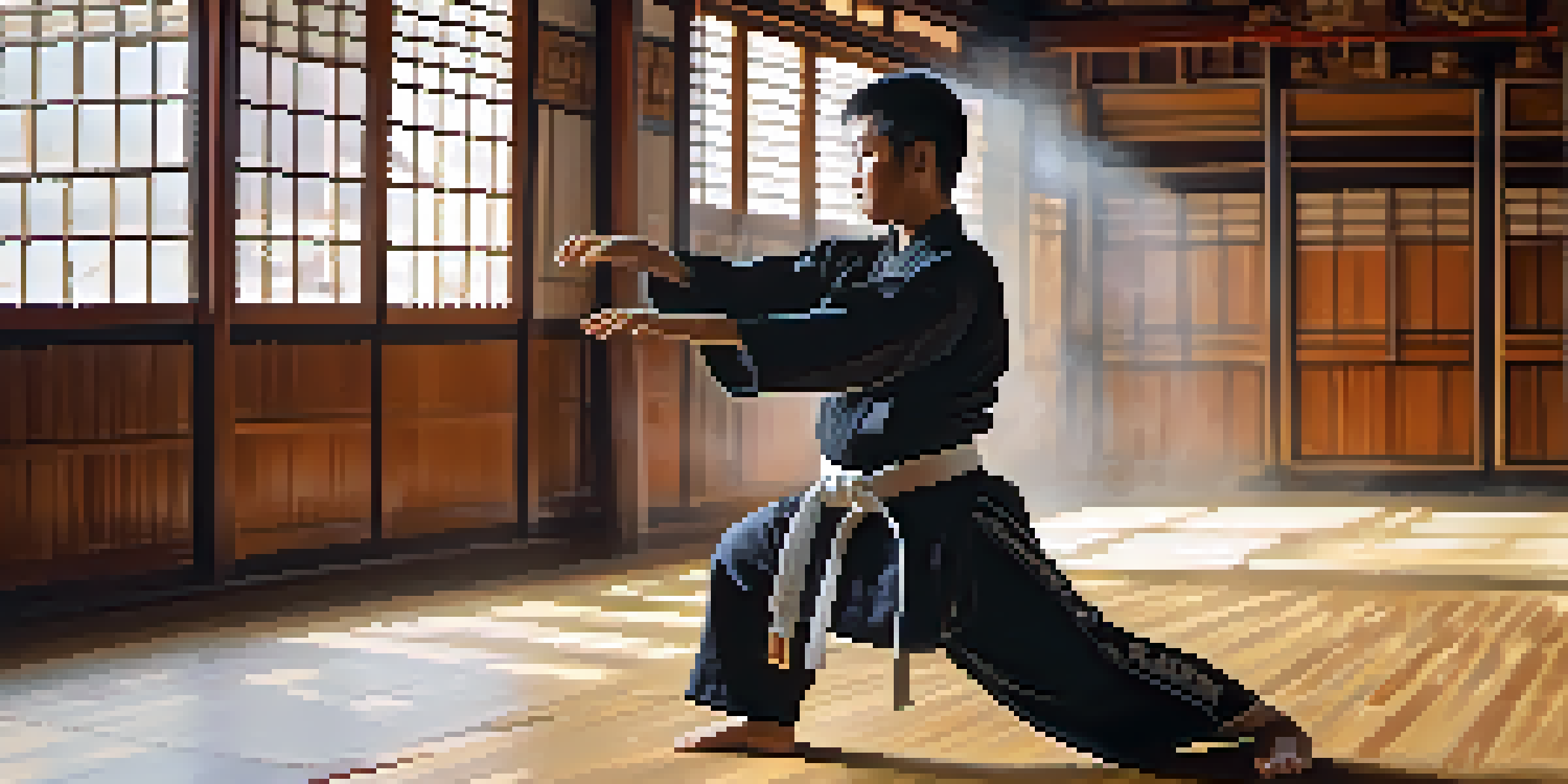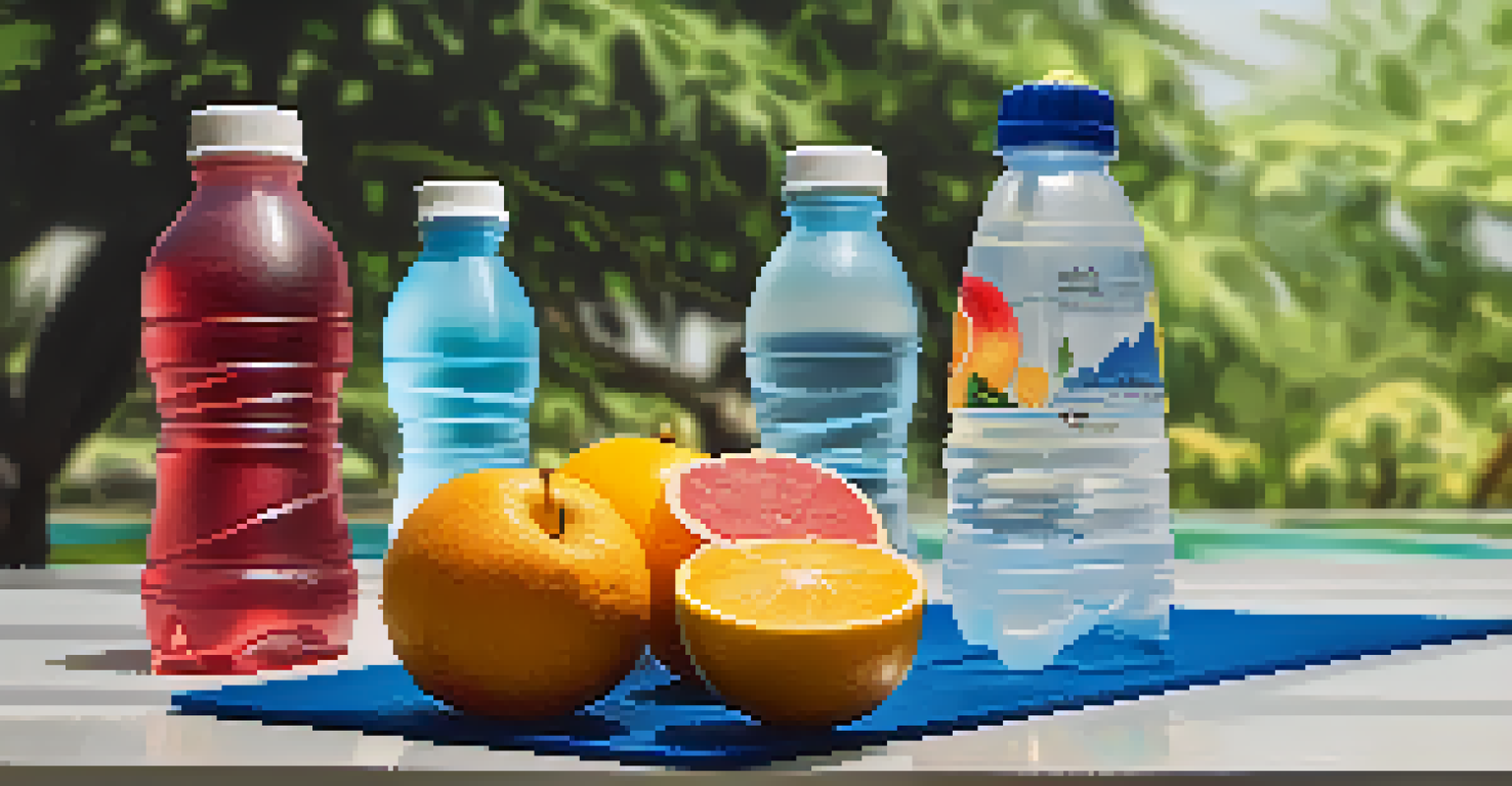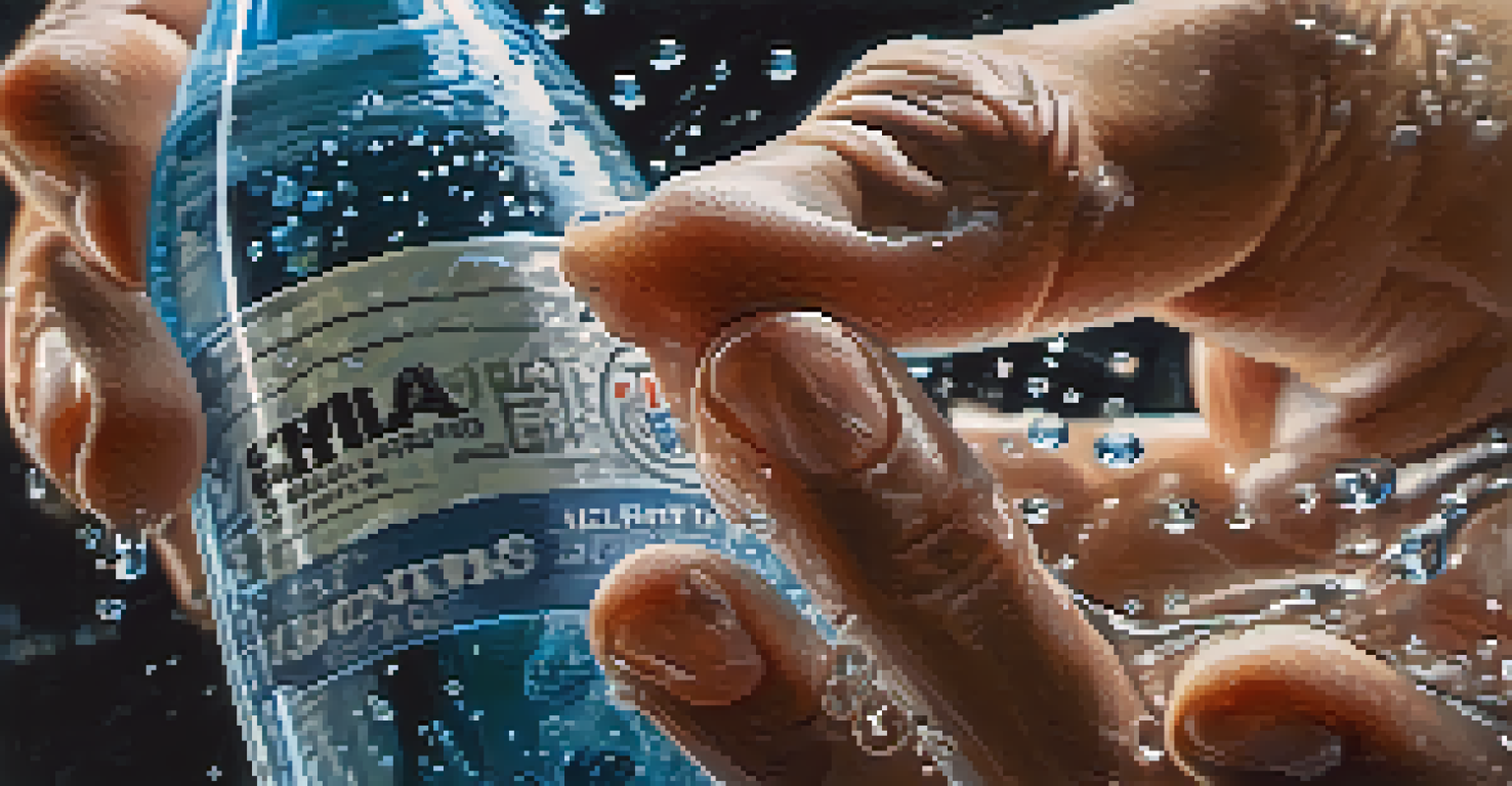The Role of Hydration in Enhancing Martial Arts Training

Understanding Hydration: Why It Matters in Martial Arts
Hydration is often overlooked, yet it plays a crucial role in physical performance, especially in martial arts. When you're practicing techniques or sparring, your body loses water through sweat, which can lead to dehydration. Just like a car needs fuel to run efficiently, your body requires proper hydration to function optimally during intense training sessions.
Water is the source of life and the essence of performance.
Dehydration can negatively impact your energy levels, focus, and overall performance. Even a slight drop in hydration can lead to fatigue, making it harder to execute techniques or maintain stamina in long training sessions. Therefore, understanding hydration is essential for martial artists who aim to improve their skills and performance.
By prioritizing hydration, martial artists can enhance their training outcomes significantly. It’s not just about drinking water; it’s also about timing and the type of fluids consumed. This foundational knowledge lays the groundwork for understanding how to integrate effective hydration strategies into your training routine.
How Dehydration Affects Physical Performance
When training in martial arts, dehydration can have immediate and severe effects on your physical abilities. For instance, if you're sparring and your body isn’t adequately hydrated, you might experience muscle cramps, decreased strength, or slower reaction times. This can diminish your effectiveness in both practice and competition.

Moreover, dehydration can impair your cognitive functions. Martial arts require not just physical prowess but also mental acuity to read opponents and make quick decisions. When you're even slightly dehydrated, your concentration may wane, leading to mistakes that could be costly during a match.
Hydration Boosts Martial Arts Performance
Proper hydration is essential for enhancing energy levels, focus, and overall performance during training and competition.
In essence, staying hydrated isn’t just a health tip; it’s a performance enhancer. By understanding these impacts, martial artists can better appreciate the importance of hydration and make more informed choices about their fluid intake during training.
Signs of Dehydration: What to Look Out For
Recognizing the signs of dehydration is crucial for martial artists. Common symptoms include thirst, dry mouth, fatigue, and darker urine. If you notice these signs during training, it's essential to take immediate action to rehydrate and prevent further complications.
Hydration is the key to unlocking your performance potential.
Additionally, you might experience headaches or dizziness, which can significantly hinder your performance. If you're sparring and feel lightheaded, it’s a clear sign that your body is in need of fluids. Ignoring these symptoms can lead to more severe issues, such as heat exhaustion or heat stroke, especially in high-intensity environments.
Being proactive about hydration means being aware of your body’s signals. Regularly checking in with yourself during training can help you learn to recognize your hydration needs and take steps to address them before they impact your performance.
Best Practices for Staying Hydrated During Training
To optimize performance in martial arts, it's essential to have a hydration plan. Start your day with water, sipping throughout training sessions to maintain hydration levels. Aim to drink water before, during, and after your workouts, as this will help replenish lost fluids.
Electrolyte drinks can also be beneficial, especially during long training sessions or competitions. They not only hydrate but also replace essential minerals lost through sweat, helping you maintain energy levels. Just like a balanced diet, balancing your fluid intake with electrolytes can enhance your overall performance.
Recognize Dehydration Signs Early
Being aware of dehydration symptoms like thirst and fatigue can help martial artists take proactive steps to maintain hydration.
Ultimately, it's about finding what works best for you. Experiment with different hydration strategies to discover what helps you feel your best during training. Keeping a water bottle nearby can serve as a reminder to stay hydrated, turning a simple action into a natural part of your training routine.
Hydration and Recovery: The Connection
Hydration doesn't just affect performance during training; it also plays a vital role in recovery afterward. After an intense martial arts session, your body needs to replenish lost fluids to aid in muscle recovery and reduce soreness. Proper hydration helps transport nutrients to your muscles, facilitating repair and growth.
Additionally, staying hydrated can help mitigate the risk of injuries. Adequate fluid levels help maintain joint lubrication, which is particularly important in martial arts where joint movements are frequent and complex. By maintaining hydration, you’re not only enhancing performance but also protecting your body from potential harm.
Incorporating hydration into your post-training routine is just as important as during your workout. Whether it's water, a sports drink, or a hydrating snack, make sure to prioritize fluid intake for optimal recovery.
Myths About Hydration You Should Know
There are several myths surrounding hydration that can mislead martial artists. One common misconception is that you only need to drink water when you're thirsty. In reality, thirst is often a late indicator of dehydration, meaning it's better to drink regularly rather than wait for those signals.
Another myth is that all fluids are equally hydrating. While water is the best choice, beverages such as caffeinated drinks can have a diuretic effect, potentially leading to further dehydration. It’s essential to choose fluids wisely and focus on water or electrolyte-rich drinks, especially during intense training.
Create Your Hydration Plan
Developing a personalized hydration strategy tailored to your training conditions can optimize performance and recovery.
Being informed about these myths can empower you to make better hydration choices. As with any aspect of training, knowledge is key, and understanding the truth about hydration can help you optimize your performance.
Creating a Personalized Hydration Plan
Just like a training regimen, developing a personalized hydration plan can significantly enhance your martial arts performance. Everyone's body is different, so it's essential to consider factors such as your activity level, weight, and the climate in which you train. For instance, someone training in hot, humid conditions may require more fluids than someone in a cooler environment.
Start by tracking your fluid intake and observing how you feel during and after training. This practice can help you identify patterns and adjust your hydration strategies accordingly. You might find that drinking a certain amount before training prevents fatigue or that sipping water regularly during practice keeps your energy levels up.

Ultimately, a personalized hydration plan should be flexible and adaptable. As you progress in your martial arts journey, your hydration needs may change, and being responsive to those changes will help you maintain peak performance.